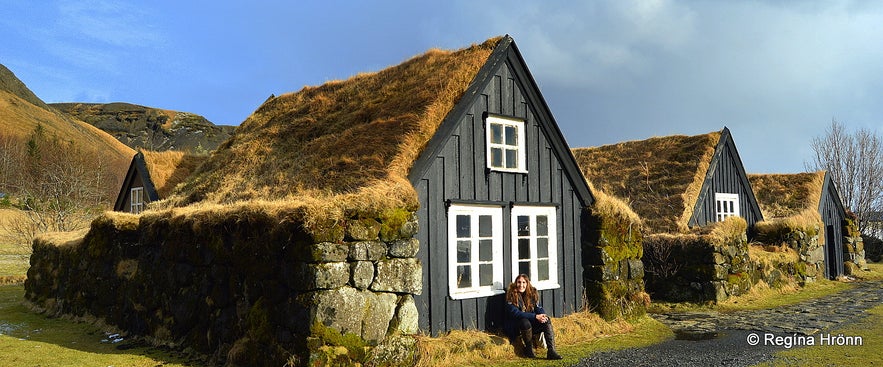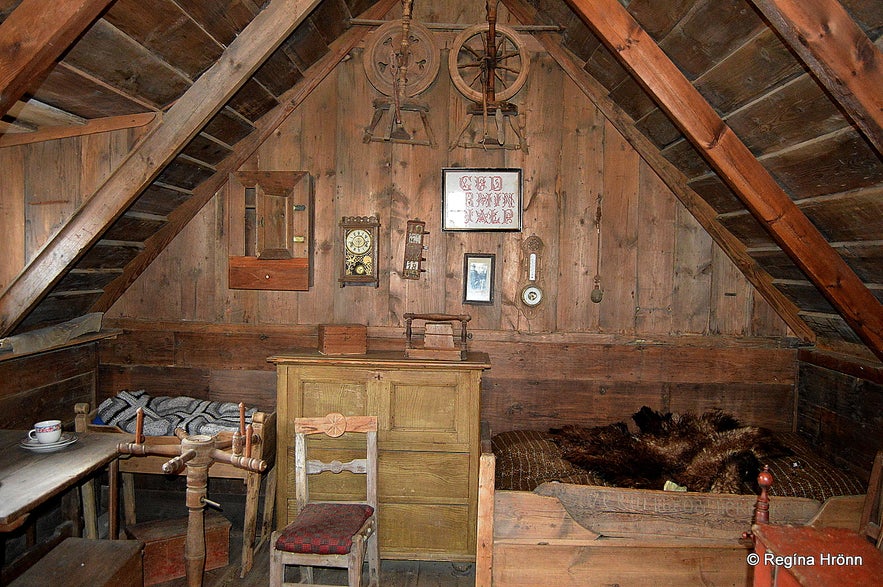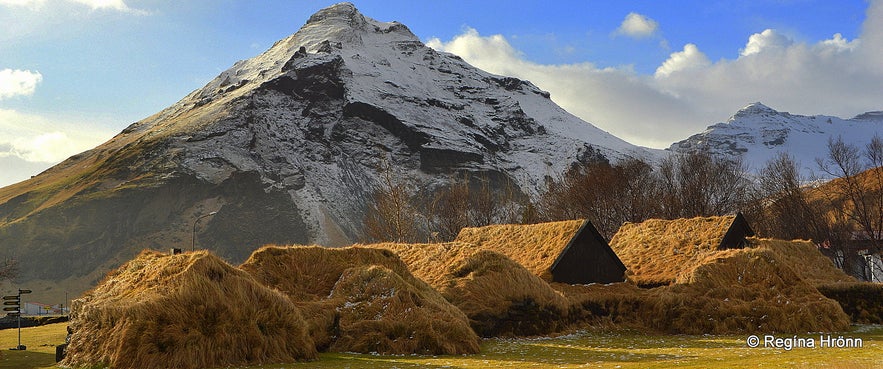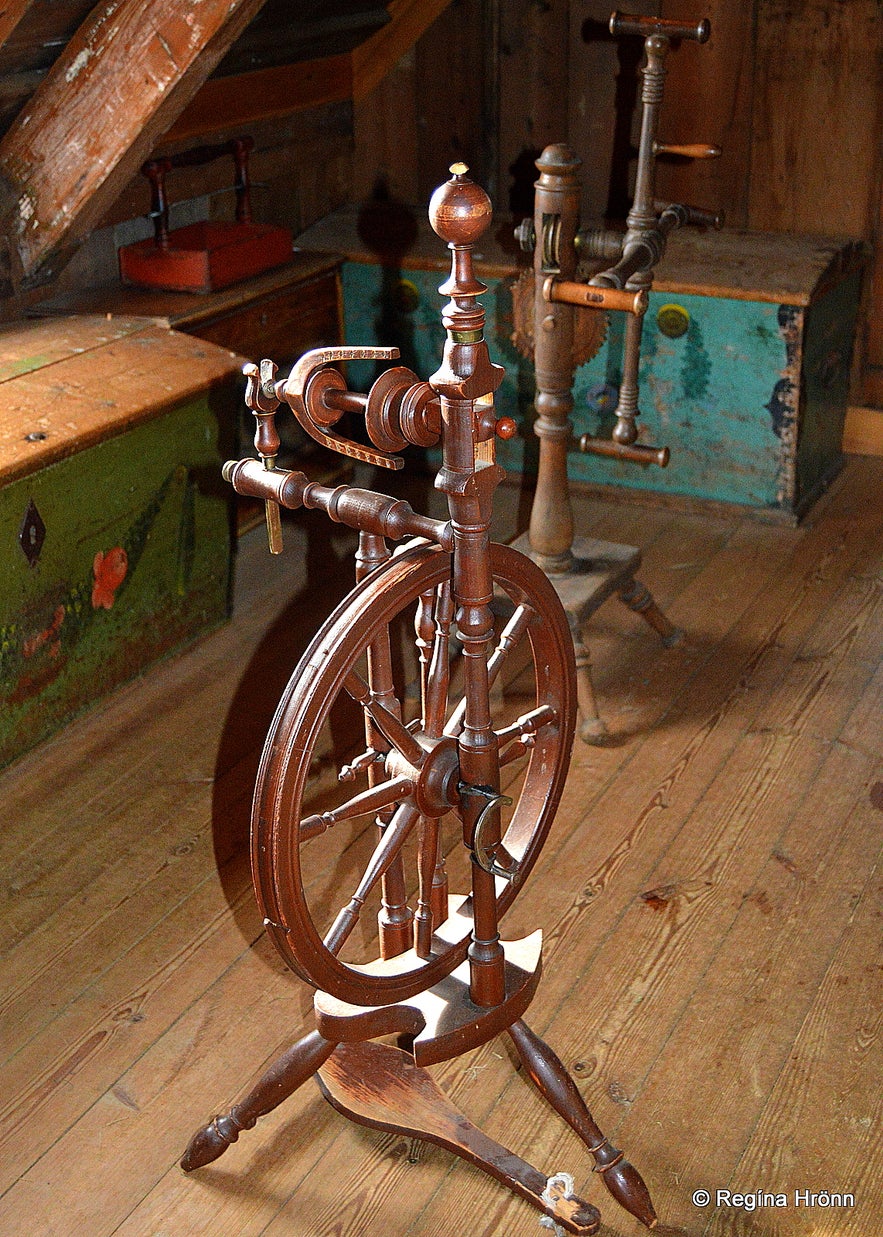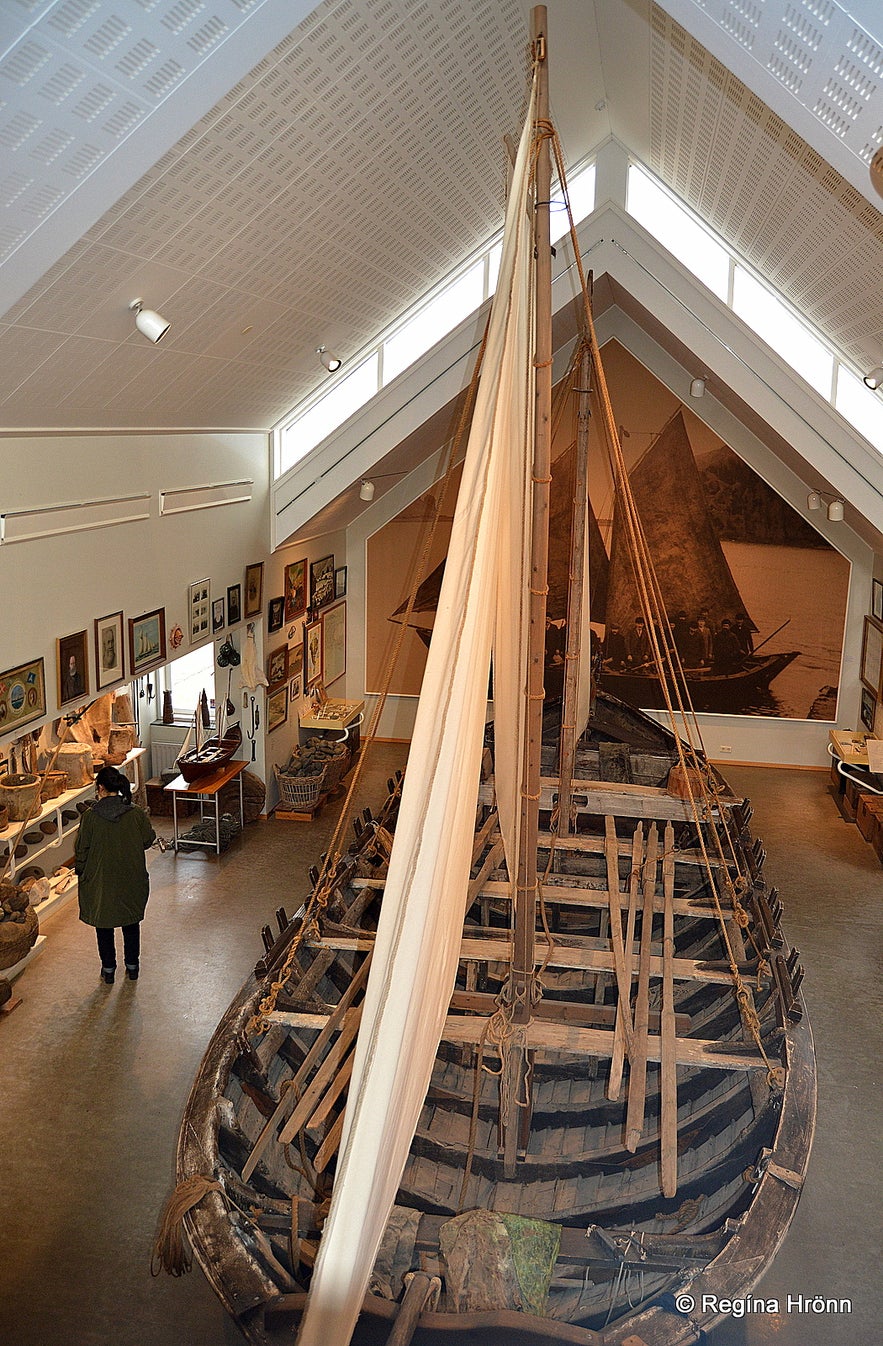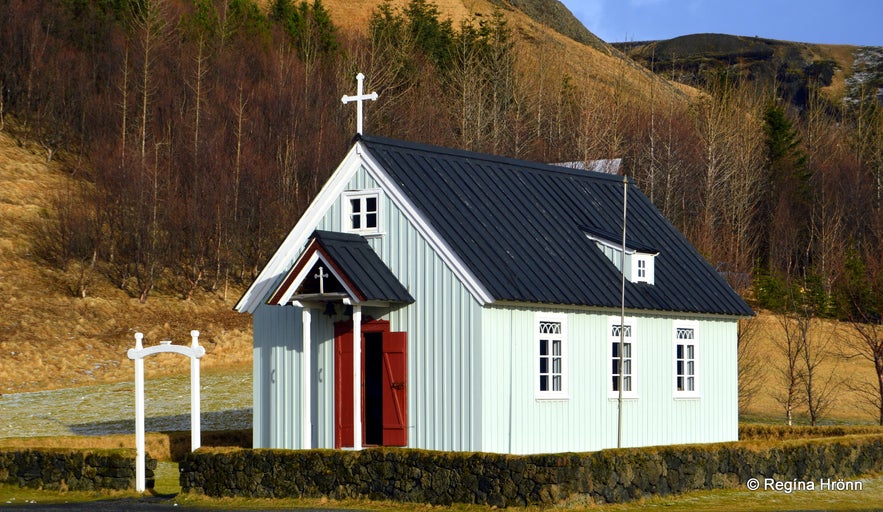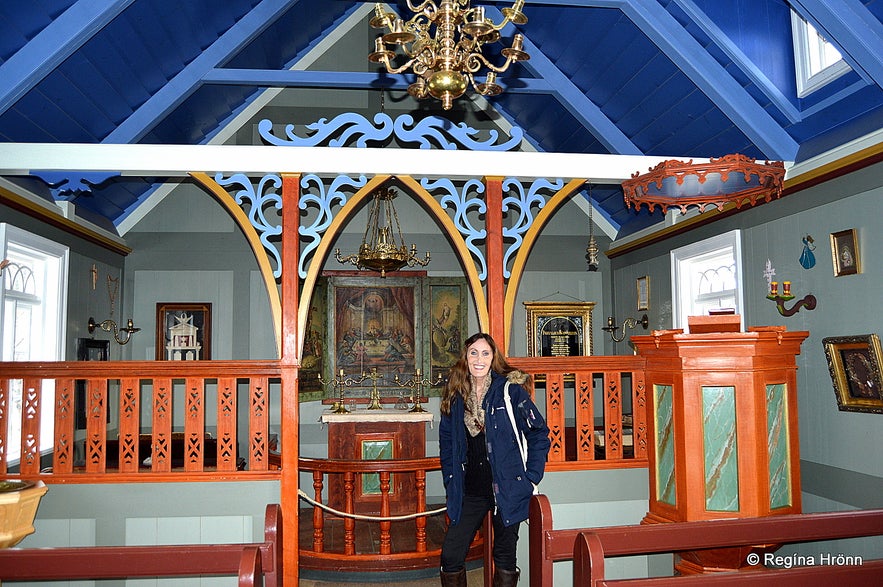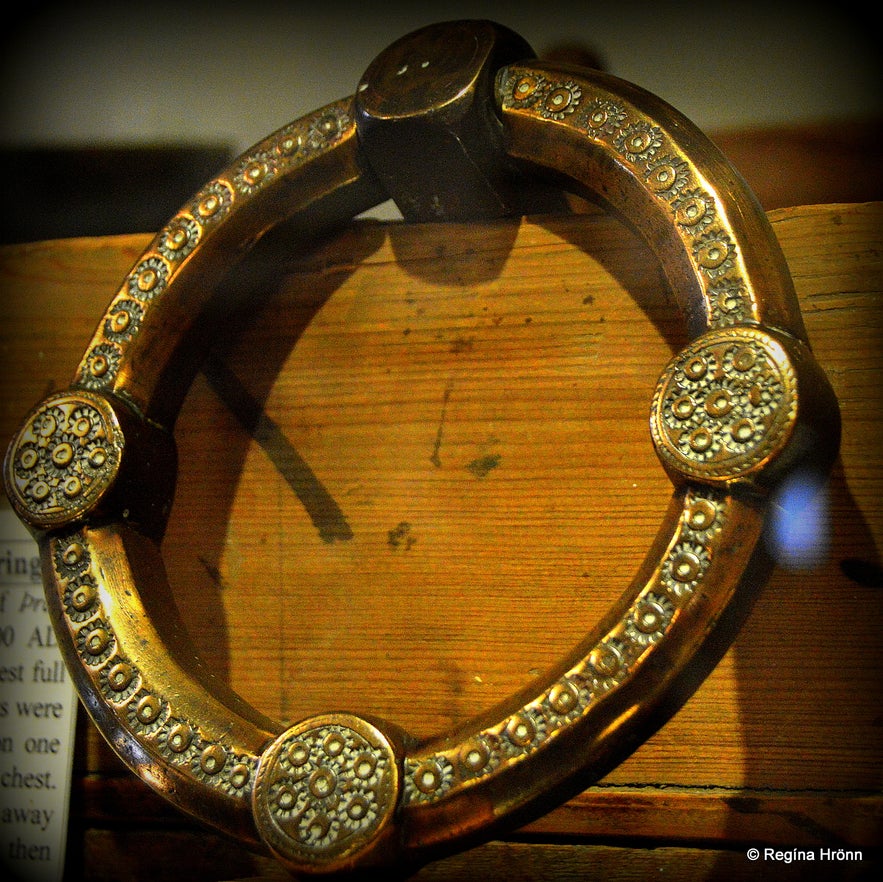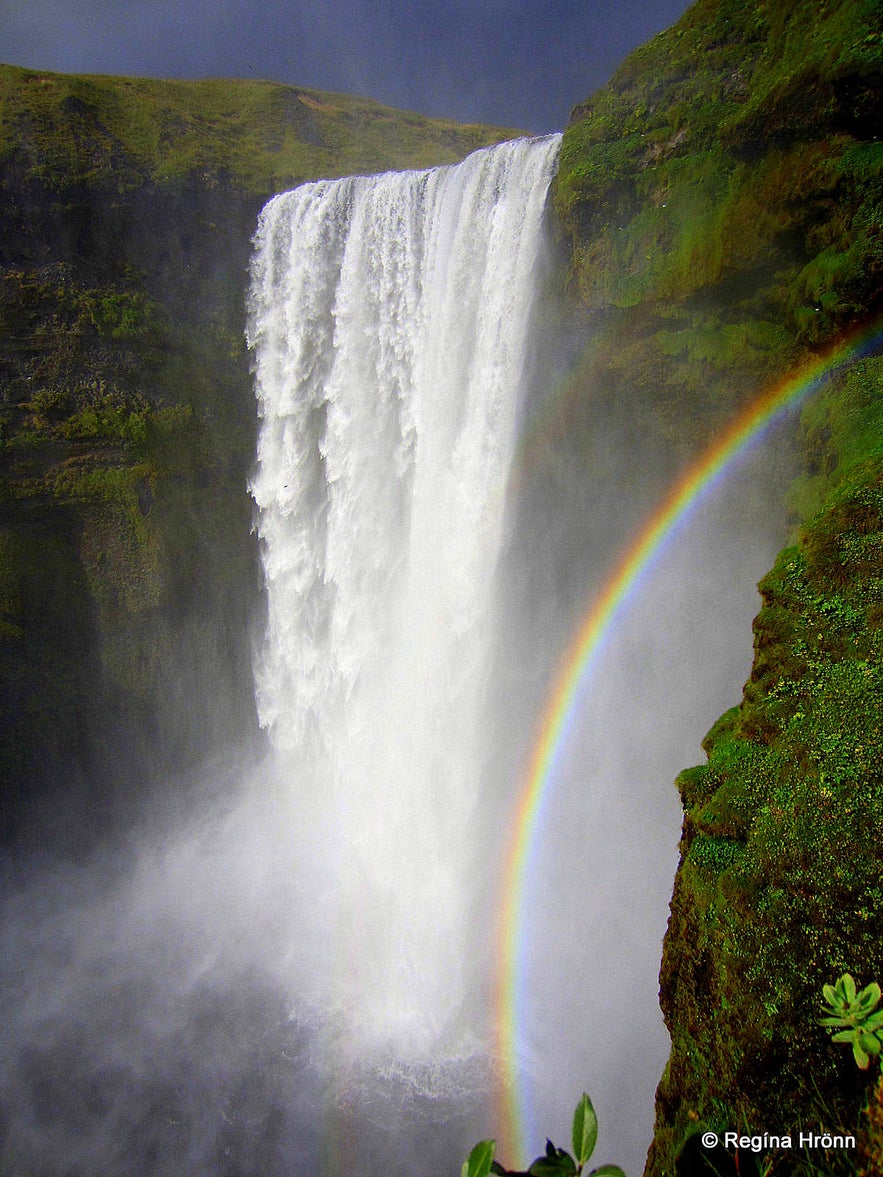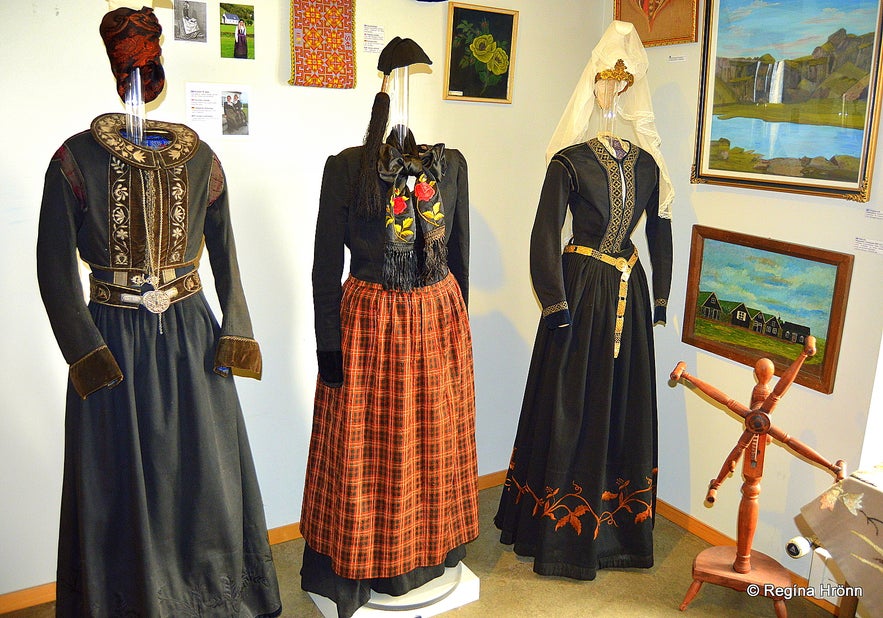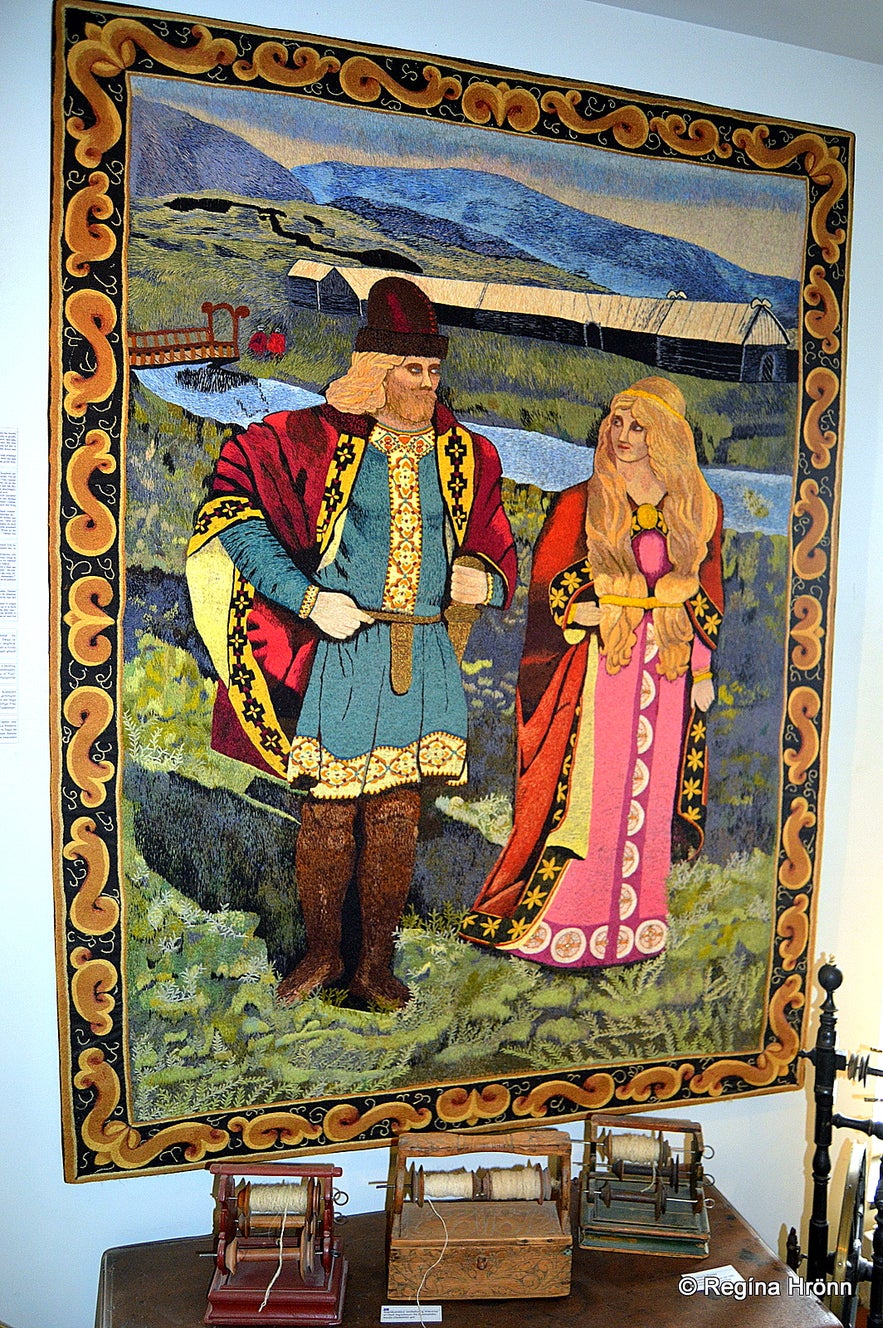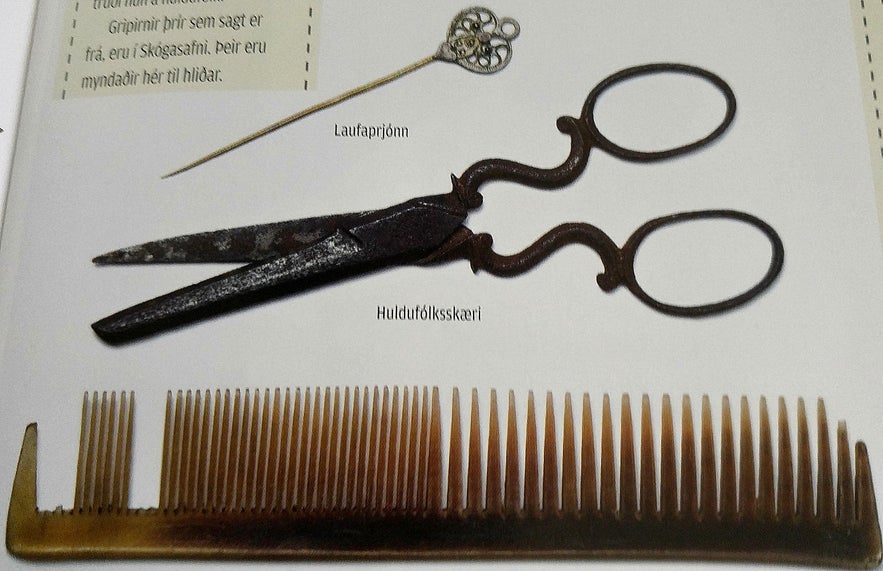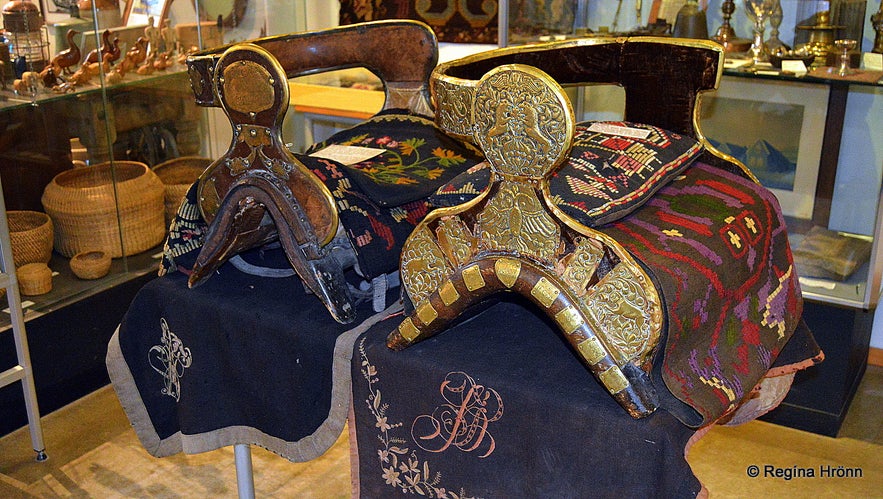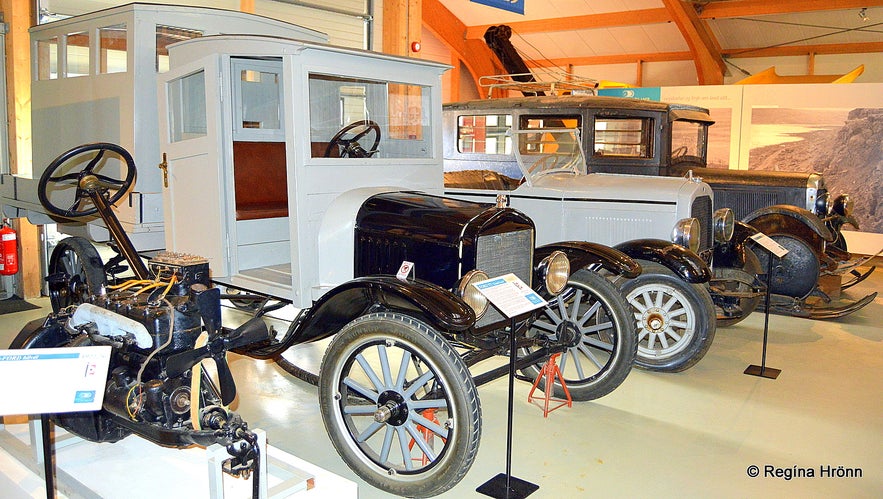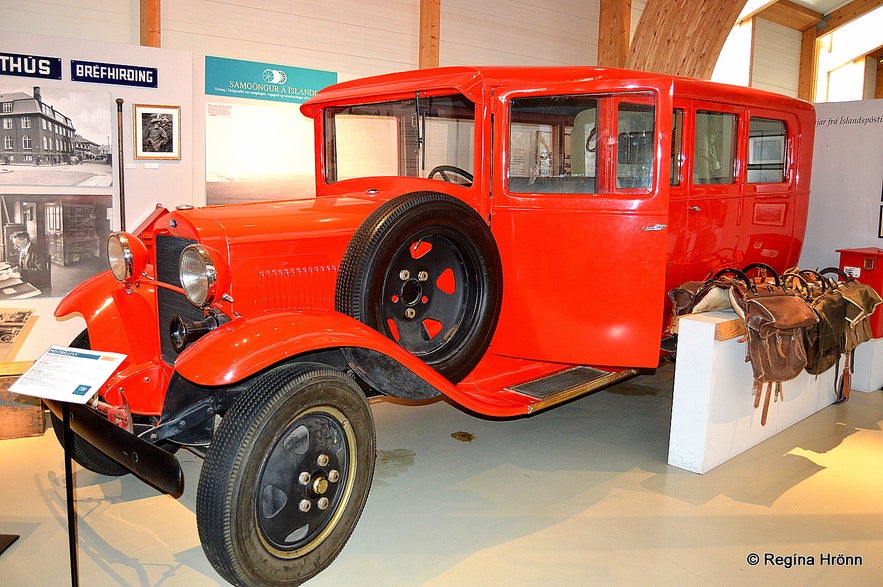
Skógasafn - Skógar Museum - An Excellent Regional Museum and Turf House in South-Iceland
Visiting folk museums is something I love doing on my travels in my country. You will find an excellent district museum in South-Iceland, a 2 hours drive from Reykjavík, which I recommend visiting - Skógar Museum (Skógasafn in Icelandic).
At the museum, you will see a turf house, but as those of you, who have read my travel-blogs know - then I love turf houses and seek them out on my travels in Iceland.
Top photo: the turf house at Skógasafn museum
At Skógar museum
I have written many travel-blogs about the few turf houses left in Iceland as I want to introduce to you this old architectural heritage, which was the traditional way of building houses in Iceland from the early days of Settlement until the last inhabitants moved out of them in the mid 20th century.
The turf house at Skógar Museum is different from other turf houses in Iceland in that it is a reconstruction of several turf houses from different places in this area.
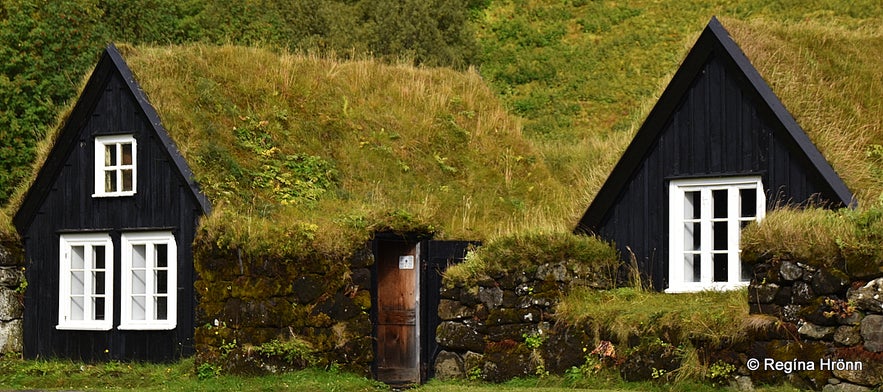
The turf house at Skógasafn museum
This cruciform cowshed dates back to 1880, the storehouse from 1830, "baðstofa" which is the living/sleeping accommodation dates back to 1895, the kitchen from 1880, the pantry from 1850, the sitting room from 1896 and the bedroom from 1838.
All of them are fully furnished, so one can see how people used to live in the olden days.
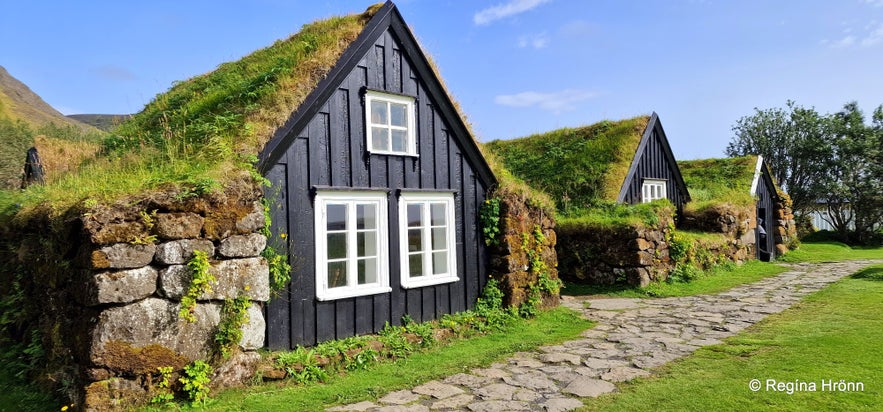 Visiting Skógasafn on a sunny day
Visiting Skógasafn on a sunny day
The first turf house was moved to Skógar in 1968. And six others were moved to Skógar from different locations.
They are so well reconstructed that you would never know that it wasn't a whole turf house from the same location.
The turf house at Skógasafn museum in the wintertime
Skógar Museum is a relatively old museum, it opened in 1949, and I first visited it when I was 6 years old in 1971 when the very knowledgeable Þórður Tómasson showed us around the museum.
I guess my interest in folk museums got ignited at Skógar Museum when I listened to a very enthusiastic Þórður tell us about all the artefacts at the museum :)
Þórður was the instigator, founder and curator of the museum until he retired in 2014 at age 92 - he turned 100 in 2021! Þórður died on the 27th of January, 2022.
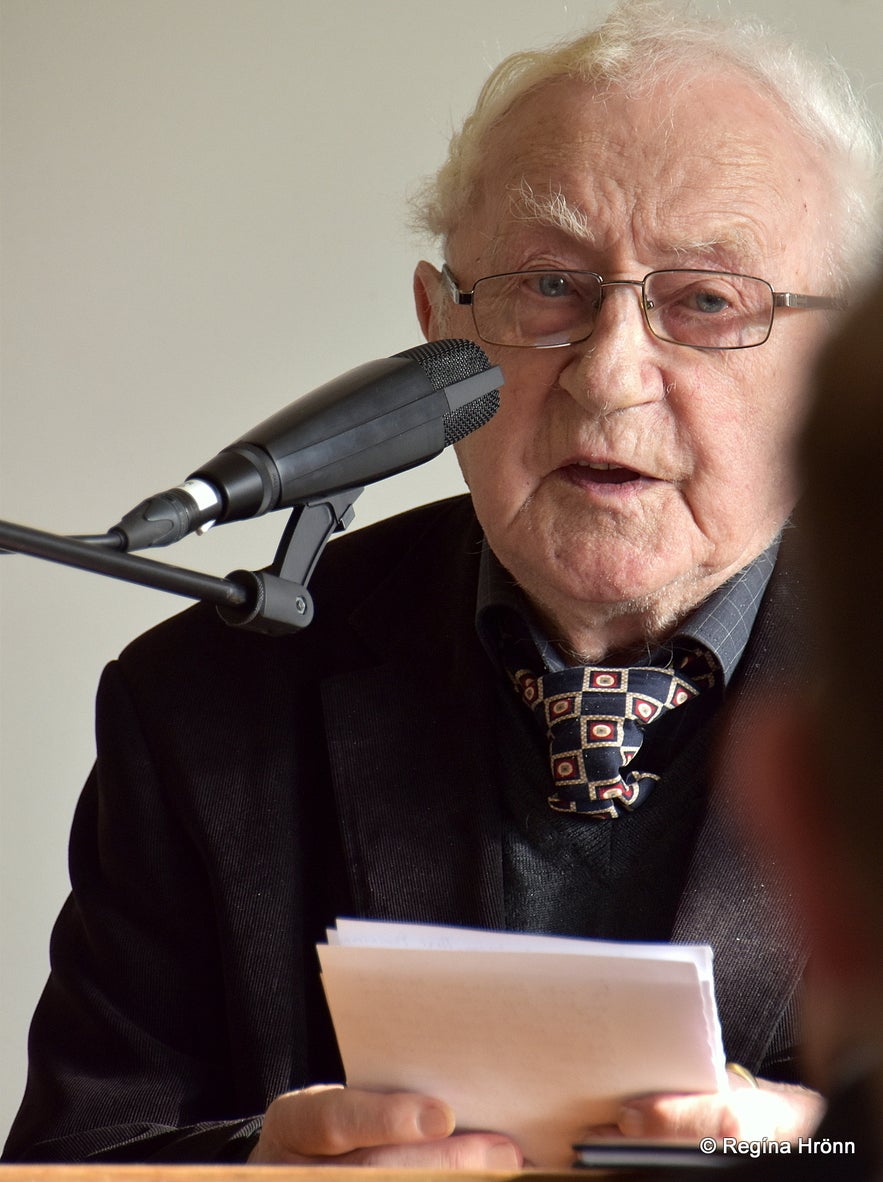
Þórður Tómasson in 2019
Kudos to him for a job well done - I am very grateful to him for having collected all these artefacts through the decades.
Þórður is also the author of many splendid books about this area, and all in all, he has written approx. 30 books. I own several of them and thank him for sharing his knowledge with us.
On the 70th anniversary of Skógar Museum, which I attended in the fall of 2019, Þórður (then 98 years old) held a speech and was applauded for his prolific work.
Skógasafn museum - an old spinning wheel
I visited Skógasafn - Skógar Museum on their 70th anniversary as this museum with all its brilliant artefacts is very dear to me.
In the beginning, the artefacts used to be on display in the summertime only in the cellar of the schoolhouse at Skógar, which served as a hotel in the summertime, so it started out small.
I have stayed at this hotel several times and have good memories of this beautiful place.
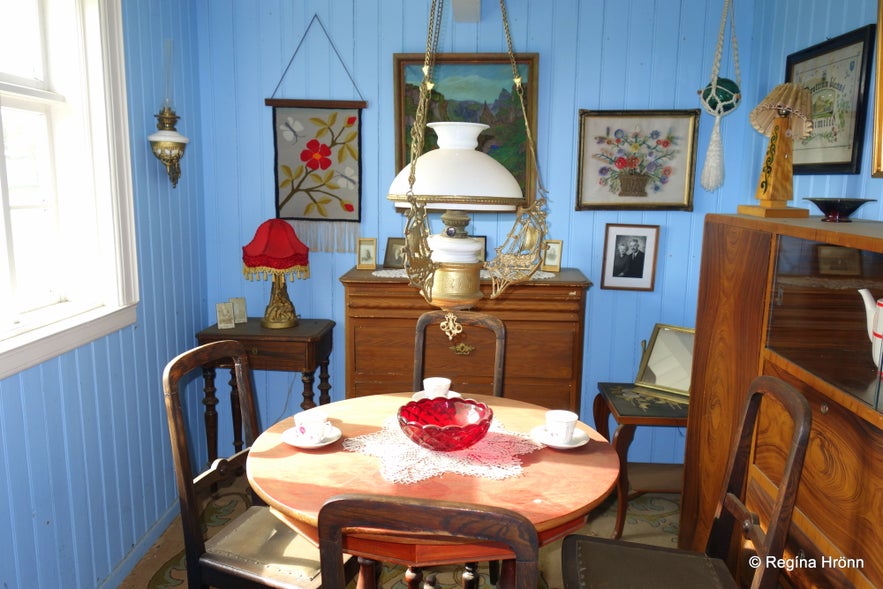 Inside one of the turf houses in Skógasafn
Inside one of the turf houses in Skógasafn
From 1945 Þórður started collecting artefacts from this area of South Iceland for the museum, and in 1952 a whole fishing boat, built at and named after the farm and mountain, Pétursey, was donated to the museum - so new facilities were needed for the museum.
Pétursey fishing boat, which was built in 1855, is the jewel in the crown of Skógar Museum and the new museum was built around it.
In 1959 Þórður moved to Skógar and became the curator of Skógar Museum.
The fishing boat Pétursey at Skógasafn museum
Apart from the beautiful turf house at Skógar Museum, there is a school building from 1901 and a Magistrate's House built in 1878 out of driftwood.
Next to it is a farmhouse, built in 1919-1920 with a turf storehouse from 1870.
All of these have been moved from different places in this area of West-Skaftafellssýsla and Rangárvallasýsla counties and reconstructed at the museum.
Skógakirkja church at Skógar
You will also find Skógakirkja Church, which is new (1998) on the outside but the interior is old from the Kálfholt church, built in 1879, and all the ecclesiastical artefacts are from different churches from the 17th-18th centuries.
The beautiful triptych dates back to 1768.
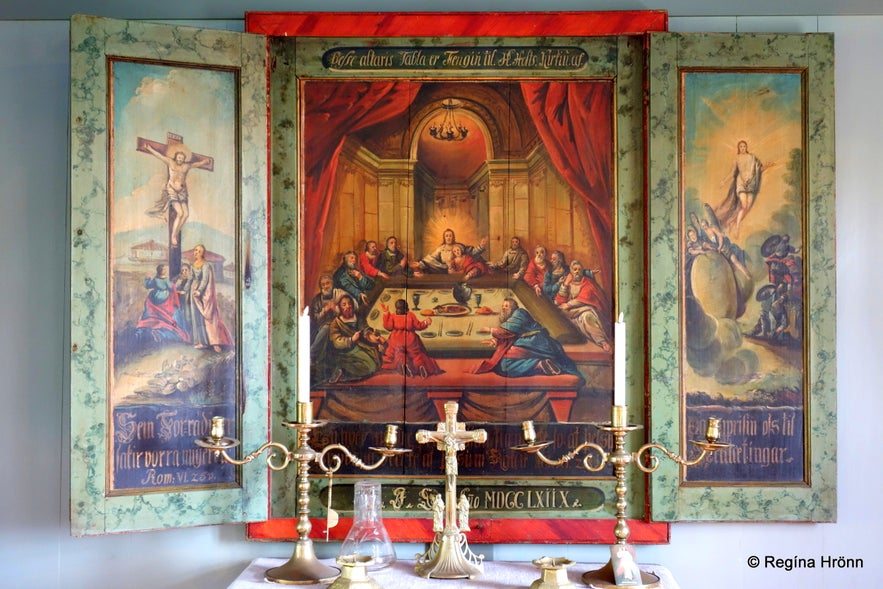 The triptych dates back to 1768
The triptych dates back to 1768
Most of these churches do not exist anymore, f.ex. one of the church bells was saved from a church during the volcanic eruption of the notorious volcano Mt.Katla in 1660.
I visit all the farm churches I see on my travels in Iceland as I love these little gems.
Inside Skógakirkja church
After visiting the open-air part of the museum, we visited 3 other inside museums with some 18,000 artefacts collected from this region!
At Skógar Museum you will amongst other things find an artefact which is connected to the legend of the majestic Skógafoss waterfall. It is believed that behind it you can find a chest filled with gold and precious treasures.
Þrasi Þórólfsson, the Viking Settler at Skógar (Eystriskógar) in around 900, hid the chest and it is said that the first man who goes behind the waterfall will find great treasures.
The ring from the treasure chest of Þrasi is on display at Skógasafn museum
The legend goes that Þrasi, who owned a chest filled with gold and treasures, had put the chest beneath Skógafoss waterfall, and in olden times one could see one side of the chest protruding from the waterfall.
There is an old Icelandic rhyme, which goes like this in English:
"The chest of Þrasi is filled with treasures
located beneath Skógafoss waterfall,
the first man who goes there
will find great richness."
Beautiful Skógafoss waterfall
The story goes that there were once three men at Skógar, the sons of Ámundi Þormóðsson. They wanted to retrieve the chest from beneath the waterfall.
All of a sudden they looked in the direction of the farm, and it appeared to be on fire - they decided to return back, only to find that there was no danger apparent on the farm.
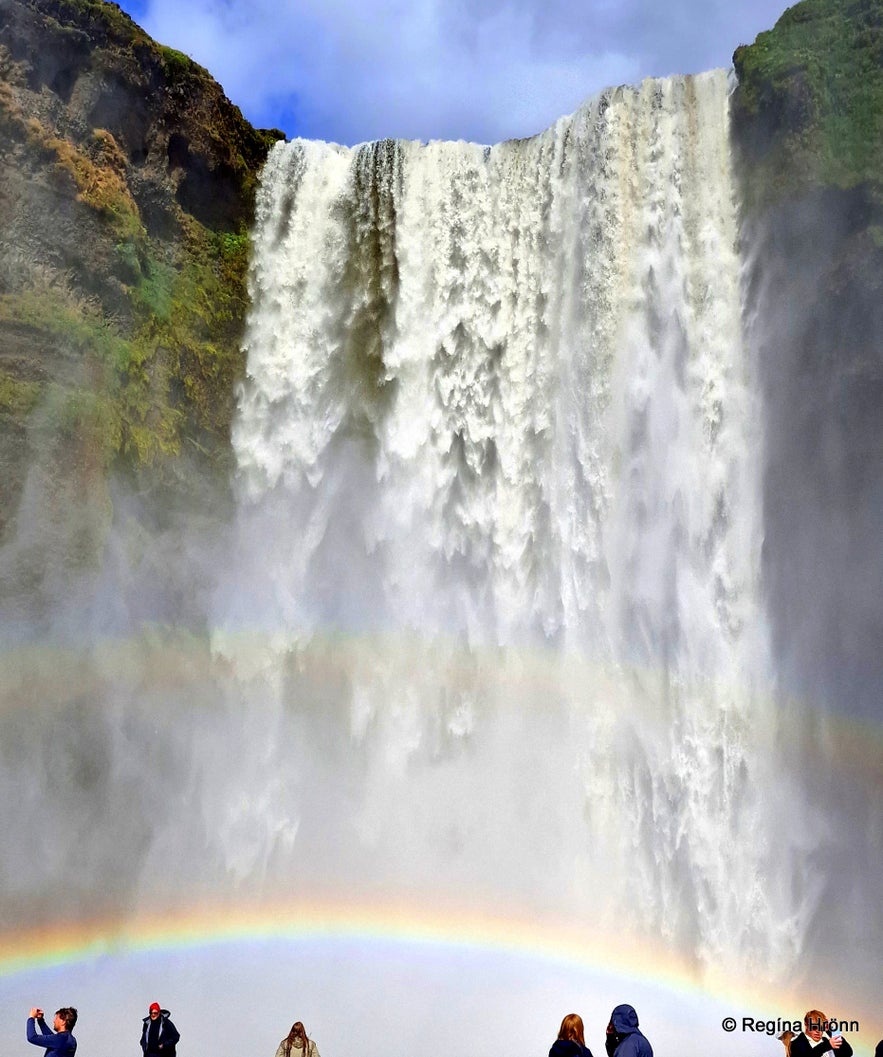 Skógafoss waterfall
Skógafoss waterfall
Later on, they decided to go again to the waterfall to retrieve the chest and were not misled by some delusions.
They managed to get quite close to the chest and were able to hook a ring on the side of the chest.
But as they were about to pull the chest towards them they jerked the ring off the chest, but the chest got left behind.
The story goes that the ring is now located in the church door at Skógar".
(Translated into English from Þjóðsögur Jóns Árnasonar - the Collection of Folklore of Jón Árnason).
National costumes at Skógasafn museum
There are myriads of interesting artefacts at the Skógar Museum. Including the old national costumes which were worn in Iceland by women in the olden days.
I always like this part of the folk museums wherever I go in the world, seeing how people were dressed in the olden days.
And there are some gorgeous national costumes on display at the museum.
Amongst all the myriad of beautiful artifacts and books and old Bibles, jewellery and personal belongings of people in this area, there is a big colourful tapestry depicting one of the heroes of the old Icelandic Sagas - Gunnar at Hlíðarendi and his wife Hallgerður langbrók.
Gunnar at Hlíðarendi and Hallgerður langbrók
Their story is told in the Saga of Burnt Njáll, which happened in South Iceland.
A guided tour is available of the most important locations of the Saga of Burnt Njáll: The Vikings and the Sagas - a fun and educational tour of South Iceland about which I have written another travel-blog.
Sigríður Einarsdóttir made this eye-catching tapestry at Dufþaksholt - it is a pure gem as so many of the artefacts at the museum.
Gifts from the Hidden People
Photo from the Skógar Museum guide, published with the permission of the curator of Skógar Museum
Skógar Museum has got some extraordinary artefacts on display, amongst them some gifts from the hidden people of Iceland.
During the 70th anniversary in 2019 of Skógar Museum, I searched for the gifts from the hidden people, but couldn't for the life of me find them to photograph them. And everybody was busy celebrating.
So the curator of the museum gave me permission to publish a photo from their museum guide (see the photo above).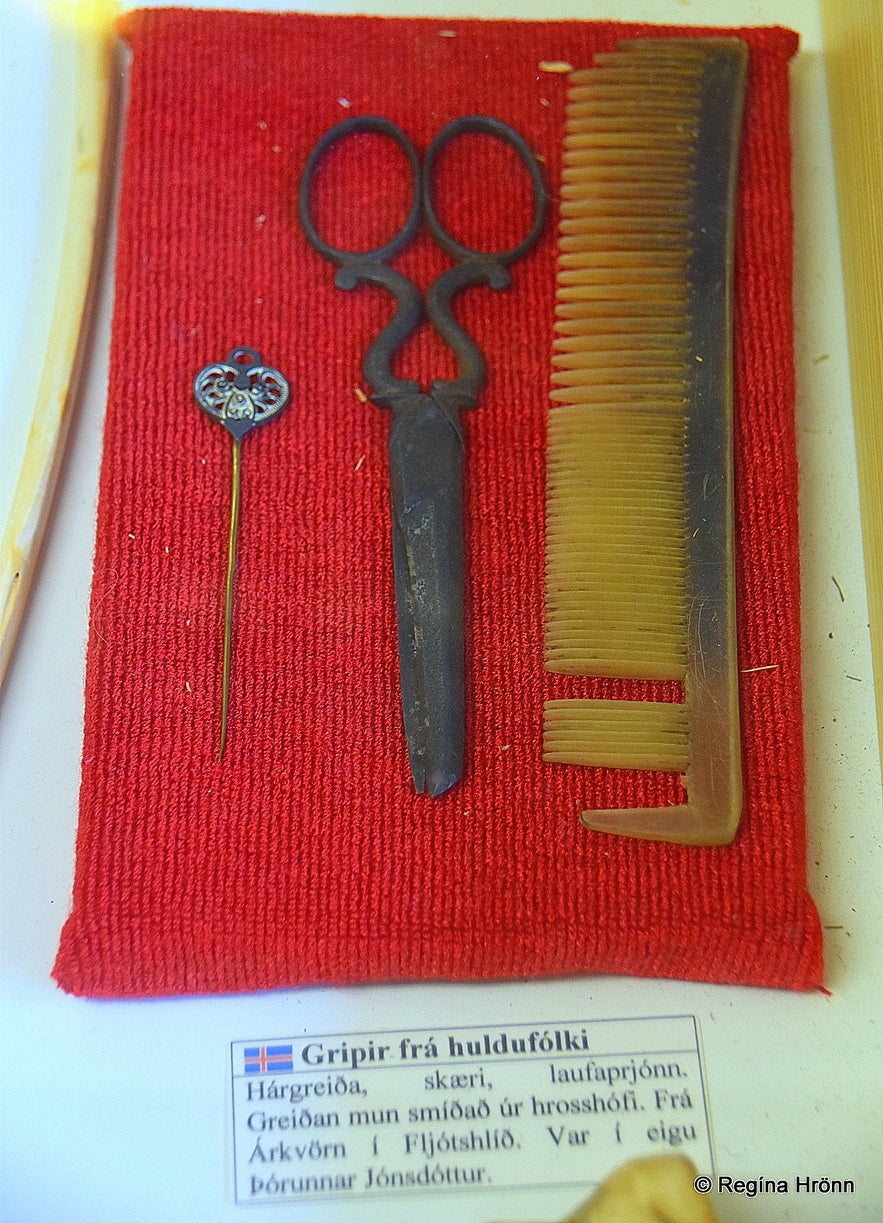
Artefacts of the hidden people of Iceland
A couple of months later, when I next visited the south coast of Iceland, I popped in at Skógar Museum to get a photo of the gifts from the hidden people.
The very knowledgeable lady working at the museum showed me where these hidden people's artefacts were to be found.
I would not have been able to find them by myself, so I was grateful for her help. You will find them if you take a left turn when you enter the museum, then another left turn and walk to the end of the showroom. The gifts from the hidden people will be on your left-hand side :)
I took the photo above of the comb, scissors, and pin. The comb is made from the hoof of a horse. Amazing artefacts!
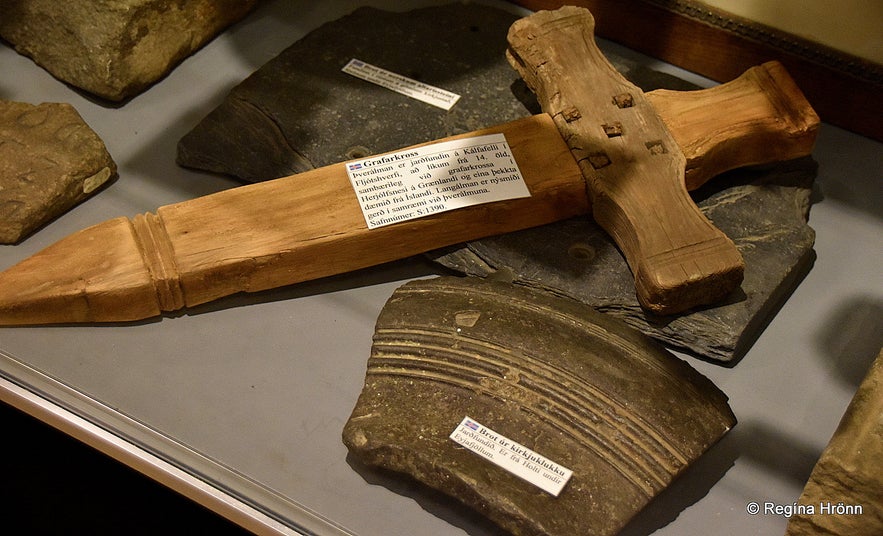
Old artefacts at Skógar Museum
The story goes like this: "Not everybody believed in the existence of the hidden people. Amongst them was Þórunn Jónsdóttir from Árkvörn in Fljótshlíð in South Iceland.
She denied the existence of the hidden people. One night she dreamt that a hidden woman approached her and said: "You don't believe in our existence, but when you wake up, look into your chest and see what you will find in it".
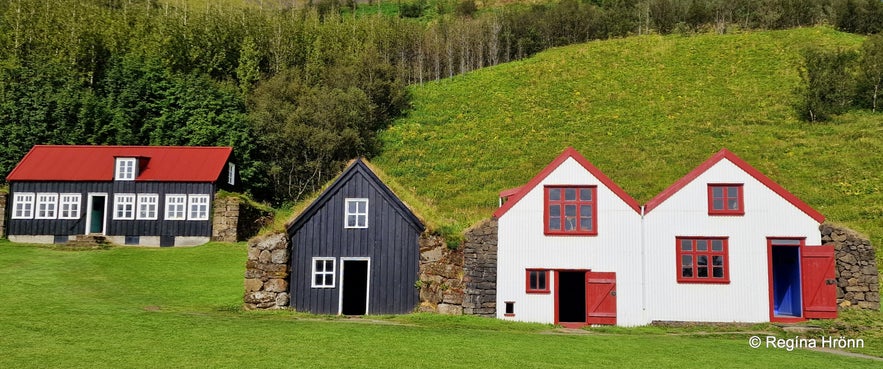 Old houses at Skógasafn museum
Old houses at Skógasafn museum
The morning after Þórunn looked into her chest and as she opened it, 3 things lay on top; scissors, a comb, and a pin. From this very day, the woman believed in the existence of the hidden people."
Samgöngusafnið - the Technical Museum at Skógar
Beautiful women saddles at the museum
The Skógar museum grew and grew, and the latest addition is the Museum of Transportation, which opened in 2002. At this museum, one can follow the development of transport in rugged Iceland through the centuries.
This part of the museum is fascinating as here one can follow the history of how horses and boats were the primary means of transport - and see the early types of snowmobiles and old cars until modern days.
Here one can also see the finest examples of women's side saddles from the 18th and 19th century (see my photo above).
Old cars at Samgöngusafnið - the Technical Museum at Skógar
On display are several reconstructed old cars, the oldest one from 1917. My photo below shows the first post-car in Iceland from 1931. It was used for postal delivery and passenger transport in the 1930s.
In this section of the Skógar Museum, you will also learn about telecommunications in Iceland, electricity and the electric network, radio communications, the Coast Guard and about Landsbjörg search and rescue.
Old cars at Samgöngusafnið - the Technical Museum at Skógar
Skógar Museum is an excellent museum to visit with many interesting sights in the vicinity: the majestic Skógafoss waterfall and other interesting waterfalls in this area.
The museum is open all year round - in June, July and August from 09-18 and in September to May from 10-17.
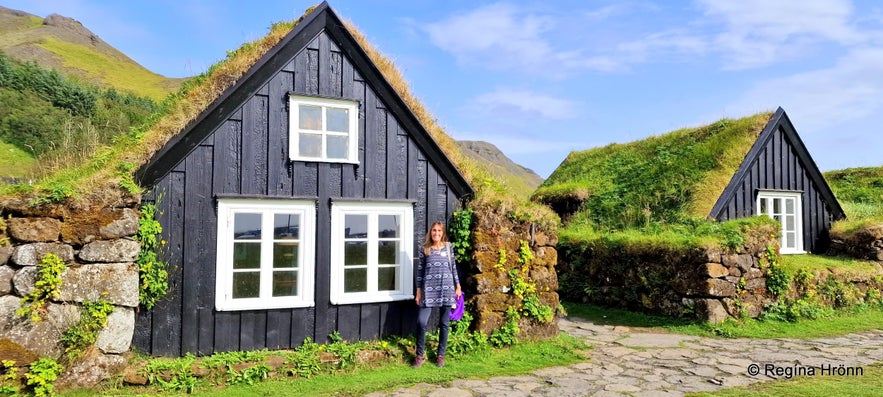
Visiting Skógasafn on a warm and sunny summerday
And if you take a short hike into the gorge behind the museum you will see a lovely, less-visited waterfall, the beautiful Kvernufoss.
Skógafoss waterfall and the museum are only some 150 km away from Reykjavík, and to reach it you can rent a car in Reykjavík and make an excellent day tour out of your visit.
Here is the location of Skógasafn museum on Google Maps.
Have a lovely time at Skógar :)
其他有意思的博客
冰岛最浪漫的角落
对于很多人,遥远的冰岛有着世界尽头的神秘,有着区别于巴黎、马尔代夫、自成一体的浪漫。没有埃菲尔铁塔和蒂凡尼,没有热带沙滩,而是在冰川、火山、苔藓地的背景下蜜月旅拍、婚拍,甚至举办一场冰岛婚礼。来冰岛旅行,多是要跨千山万水、飞跃大洋大陆,很有一点“万水千山陪你走过”的史诗感。难怪很多人说,光是冰岛二字,就足够浪漫了。 冰岛虽然不大,但是地貌极其丰富,不同的自然景观自然有不同的气质。这一篇,就挑阅读更多从极光观测到摄影-到底该不该来冰岛看极光
很多朋友都想来冰岛看极光,但是冰岛到底适不适合看极光呢?几月、什么季节能看到极光?是不是一定要参加北极光旅行团?如何能拍摄出美丽的极光照片呢?在冰岛住了好几年了,从刚开始逢极光必出门,到如今家里阳台就能看极光,我对在冰岛看极光的了解和经验,也算得上大半个专家了,且听我娓娓道来吧。 到底该不该来冰岛看极光呢?最坦诚的答案是,不要只为了看极光而看极光。 极光原理 太阳活动→太阅读更多
迷失冰岛的米湖游览推荐|不只有温泉的地热宝藏区
我在冬夏秋均到访过米湖,看过米湖的不同面。一直以来,米湖到底值不值得去是很多游客争论的问题。有些人觉得这里是来冰岛旅行的必去目的地,有些人则说米湖“太丑了”,连照片都不想多拍几张。那米湖到底值不值得来呢?到底怎么玩呢? 米湖的风景 北部的米湖,因地理位置相距首都雷克雅未克略远,很多来冰岛的短途游客选择放弃,其实米湖应该是和黄金圈、南岸沿线至冰湖齐名的冰岛景色,这里冷热相融,可谓最冰岛,尤其阅读更多

将冰岛最大的旅行平台下载到您的手机中,一站式管理您的整个行程
使用手机摄像头扫描此二维码,然后点击显示的链接,将冰岛最大的旅行平台添加到您的手机中。输入您的电话号码或电子邮件地址,以接收包含下载链接的短信或电子邮件。

